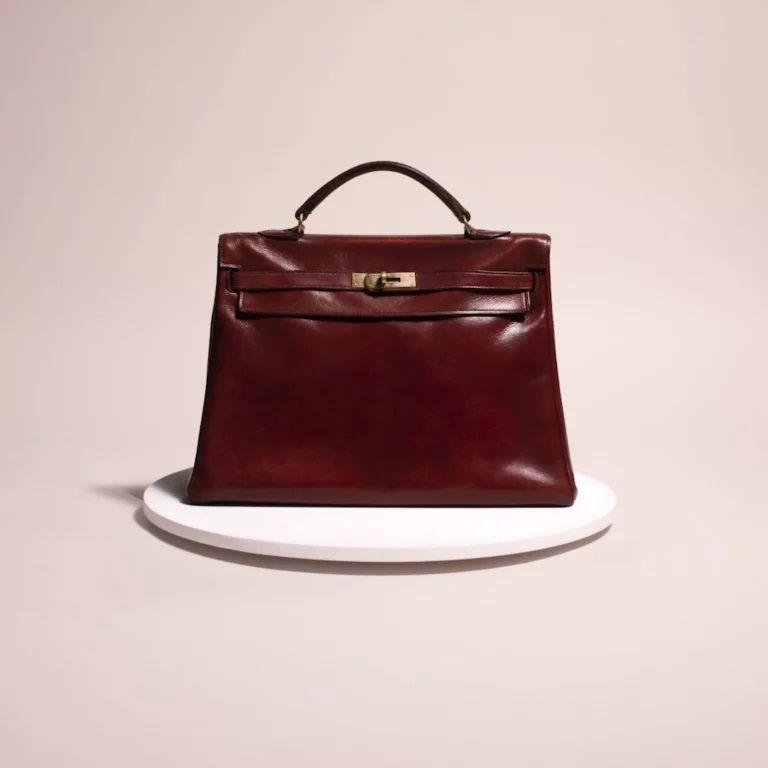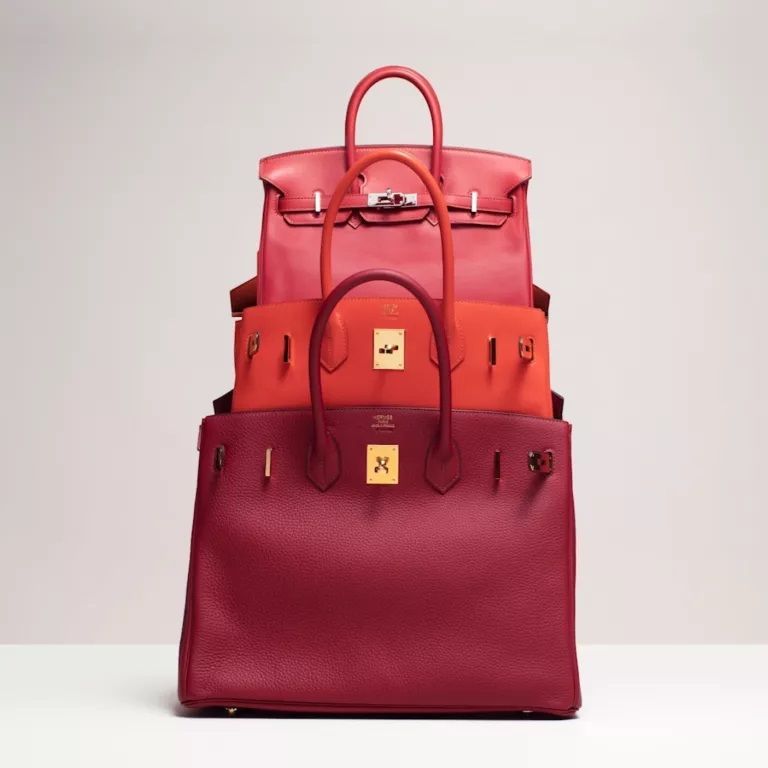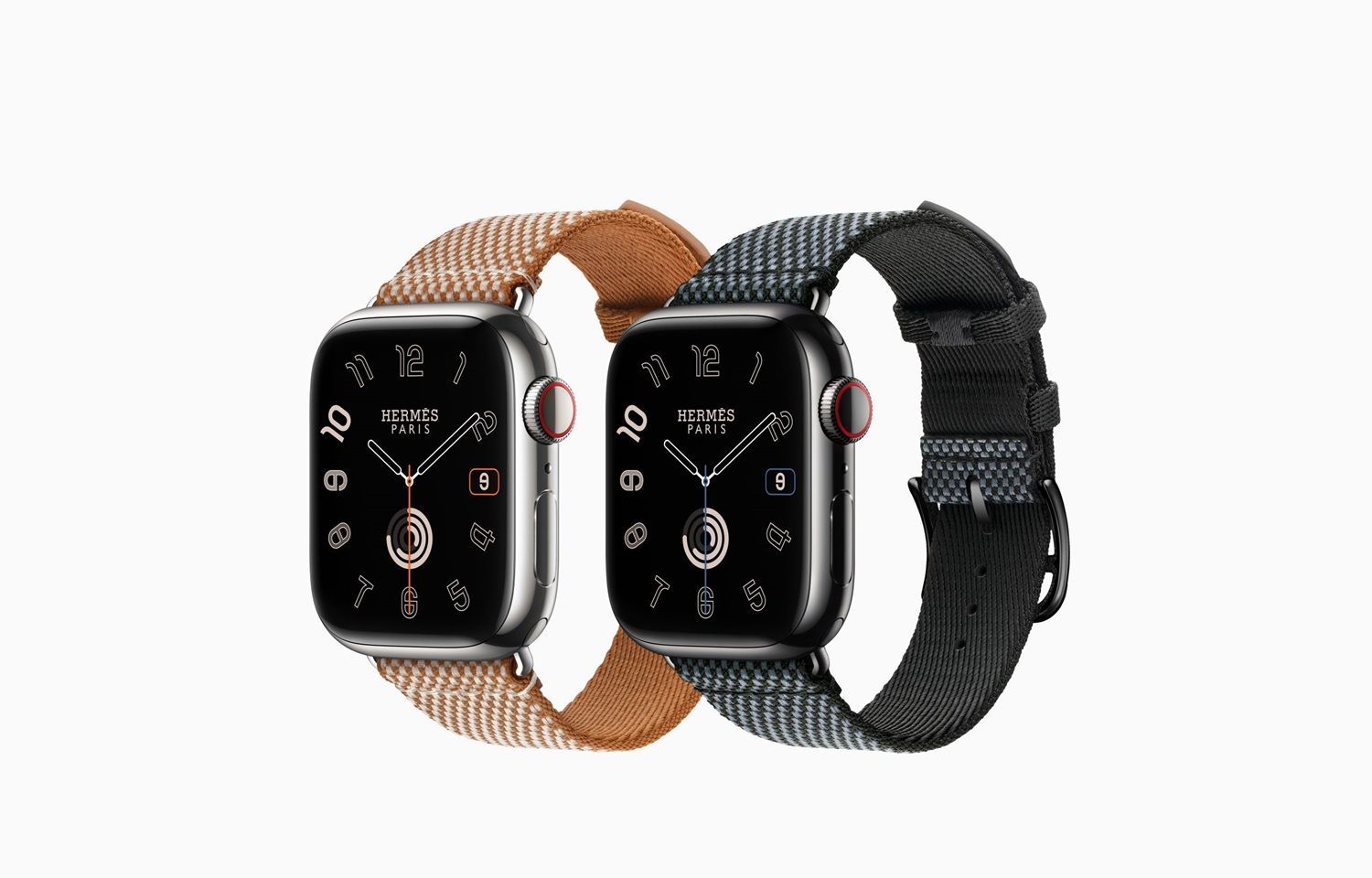
Hermès International, or simply Hermès, has woven itself into the fabric of luxury for centuries with timeless products such as the Birkin bag and the aesthetically beautiful silk scarves. Its opulent creations, steeped in tradition and craftsmanship, have captivated the world’s elite, amassing a fortune for the Hermès family at the helm. But the story of the luxury fashion brand, which began with manufacturing exquisite leather goods, has gone on to create a family saga with the astute navigation of an ever-shifting world of preference and demand.
The Hermès family holds the keys to a legacy built on generations of excellence. Their commitment to quality, craftsmanship and innovation has secured their place at the pinnacle of luxury. Not much is known about the individual members of the family, but one, in particular, was in the news in mid-December 2023 after reports suggested that he is set to give away his fortune of around USD 11 billion to a gardener he wants to adopt.
All about Hermès: The brand and the family behind it
The rise of Hermès and its notable heads
The roots of the Hermès empire date back to 1837, when Thierry Hermès, a harness maker, opened his workshop in Paris’ rue Basse-du-Rempart. His focus was on catering to the equestrian world, crafting saddles and harnesses for carriages. The quality and craftsmanship of his work quickly gained recognition, securing him royal patronage and a reputation for excellence.
In 1880, Thierry’s son, Charles-Émile Hermès, moved the business to 24 Faubourg Saint-Honoré, where he opened a store. In the early part of the 20th century, the family business came under the visionary Émile Hermès, son of Charles-Émile and grandson of Thierry. Émile was responsible for diversifying the business by introducing luggage, handbags and other leather goods to the house’s already-established reputation as a harness- and saddle-maker. In 1922, he gained exclusive rights to what is today known as the zipper. The zip was, therefore, added to many Hermès bags.
It was also Émile’s expansionary drive that laid the foundation for Hermès’s future as a fashion powerhouse. Between 1925 and 1928, Hermès introduced the first men’s ready-to-wear garments, jewellery, watches and sandals.
Robert Dumas, one of the four sons-in-law of Émile Hermès (who had no sons), became the head of the business in 1951. Dumas gained fame years ago by creating Hermès’s iconic silk scarf in 1937. Known as a canvas for intricate designs and vibrant colours, it has become a collector’s item and has been worn by fashion icons and royalty alike. Robert also created the Chaîne d’ancre bracelet, drawing inspiration from the moored boats in Normandy.
His son, Jean-Louis, took the helm in 1978. It was under his leadership that the house of Hermès entered new territories and acquired unique know-how, such as shoe manufacturing (with the bootmaker John Lobb) in 1976 and watchmaking in 1978 under the name La Montre Hermès. Later, Puiforcat silversmiths in 1993 and the crystalworks of Saint-Louis in 1995 were integrated into the brand.
The luxury fashion house also expanded its footprint around the world with the opening of numerous stores as well as Maisons Hermès during Jean-Louis Dumas’s leadership. One of the Maisons Hermès came up on Madison Avenue in New York City in 2000, which was followed by the Maisons Hermès in Ginza, Tokyo, in 2001 and another in Dosan Park, Seoul in 2006.
Axel Dumas, the nephew of Jean-Louis Dumas, became Executive Chairman of Hermès in 2013. The business was overseen by Patrick Thomas for a while before Axel’s elevation. Thomas was the Managing Director of the group from 2003 to 2006 and a close associate of Jean-Louis.
Under Axel, Hermès opened its fifth Maison Hermès in Shanghai in 2014, along with new stores worldwide. In 2022, a new Maison Hermès was opened at 706 Madison Avenue in New York’s Upper East Side.
Famous creations by Hermès
Though the luxury fashion brand is known for several iconic creations, it is particularly associated with bags. There are especially two that have secured an undisputable stature in the world of design — the Kelly bag and the Birkin bag.
The Hermès Kelly bag was designed by Robert Dumas in the 1930s but was not known by its now iconic name at the time. It was in 1956 when the handbag became a visible symbol of high fashion, elitism, class and, rather literally, royalty, when Grace Kelly, the princess of Monaco, was photographed with it. The resultant popularity of the bag led Hermès to rename it “Kelly” in honour of the princess.
The Hermès Birkin bag, on the other hand, was created in 1984 by Jean-Louis Dumas after a chance meeting with the British actress Jane Birkin on a flight from Paris to London. Jane Birkin told Jean-Louis that she couldn’t find a bag suitable for her needs as a young mother. Jean-Louis, who was the then Hermès executive chairman, quickly sensed an opportunity for a unique bag that would be supple and spacious. Thus was born the Birkin bag, named after Jane Birkin, with its rectangular holdall, a flap and saddle stitching.

The very first handbag created by Hermès was released in 1922. Before the Hermès Kelly bag, it was the Sac à Dépêches that enjoyed a famed standing. It was created during the time of Émile-Maurice in 1935 to satisfy his wife’s needs. Some believe that it was the Sac à Dépêches which was renamed to Kelly, but there is a lack of clarity on this.
The Constance is another iconic Hermès bag. Introduced in 1959, it was designed by Catherine Chaillet for the house and was named after her daughter. It is known for its distinctive large ‘H’ clasp.
Speaking of ‘H,’ Catherine Karolyi, the French stylist of Hungarian origin, created the famous ‘H’ buckle when she was in charge of handling the women’s wardrobe from 1967 to 1980.
Among other famous products by the luxury fashion brand are the minimalist Clic Clac bracelet with its signature double H clasp, the effortlessly chic Oran sandals, which were designed by Pierre Hardy for Hermès and released in 1997, and the Avalon throw blanket, which was launched in 1988.
Among the watches made by Hermès, perhaps the finest is the Cape Cod. Introduced in 1991 and designed by Hermès artistic director Henri d’Origny, the Cape Cod was inspired by Chaîne d’Ancre, a bracelet design created by Robert Dumas.
Such has been Hermès’s exclusivity in the world of horology that Apple partnered with the house on a special-edition Apple Watch in 2015.

At the time of the launch, Hermès’s artistic director and the son of Jean-Louis, Pierre-Alexis Dumas, remarked, “At Hermès, we strive to provide our clients with elegant, creative and functional objects for their everyday lives. What more contemporary and relevant expression of this principle could there be than this collaboration with Apple. We are strongly united by the same deeply held ideas and principles. I see it as the establishment of an alliance in excellence; like horse and carriage, a perfect team.”
The watch collaboration was one of the highlights of the illustrious legacy of Pierre-Alexis, who has been the head of the creatives at Hermès since 2005. Pierre-Alexis has been instrumental in several key design-related advancements at the brand. Among them are its first Haute Bijouterie collection in 2010 and the launch of home furnishing fabrics and wallpapers in 2011, with Pierre-Alexis being a driving force.
What makes Hermès famous?
The luxury fashion brand gained fame early on due to the meticulous handwork that went into the creation of each of its products. Besides its use of the finest materials and the deployment of time-honoured techniques, it is the particular tenet of handwork that has remained ingrained with the brand’s DNA ever since its creation.
It is also noteworthy that Hermès products are generally not mass-produced. Once upon a time, something as sought-after as the Birkin bag had a waitlist spanning years. But even though this may not be the case anymore, it is not easy to buy a Hermès Birkin or Kelly bag as demand always outstrips supply.
Moreover, as can be understood from the enduring status of both Birkin and Kelly bags, Hermès designs are not fleeting trends. They are classic and elegant. They transcend seasons and styles. It, therefore, builds an emotional connection between the brand and its customer, who often hold on to their Hermès products for life before passing them on as precious heirlooms to following generations.
A unique fact about Hermès is that, unlike many of its equally prestigious competitors, there are no famous faces as its brand ambassadors.
As such, Hermès continues to enjoy its position as a luxury reserved for the privileged few. This is one of the reasons why, according to a December 2023 report by Bloomberg, the brand has remained virtually unaffected despite a slowdown in the luxury goods market that has impacted even major players such as Bernard Arnault’s empire, LVMH Moët Hennessy Louis Vuitton, or simply LVMH.
“Hermès has been successful by keeping its originality and singularity,” David Dubois, an associate professor of marketing at business school Insead, told Bloomberg. “The family is one of the secrets and principal assets of the brand’s success. They are the keepers of its heritage and know how to make it evolve without a revolution.”
“We are proud of our model, but remain modest; it’s the result of the commitment and talent of our teams across the world,” Axel Dumas, who is 53 years old, wrote in an e-mailed response to Bloomberg.
The net worth of Hermès family members
According to the Bloomberg report, the Hermès family is Europe’s richest with a combined fortune of USD 151 billion. The publication says that the rise in their fortune has been an astonishing 59 per cent. As of December 2023, the family is the third-wealthiest in the world — ahead of mega-rich US families of the Mars and Koch empires as well as political powerhouses such as the ruling House of Thani of Qatar and the Al Sauds of Saudi Arabia.
Today, the Hermès family comprises over 100 members. However, there are only about 16 heirs who have a greater holding in the company, whose valuation is around USD 220 billion as of December 2023.
The two most important names among the family members are Axel Dumas and Pierre-Alexis Dumas, who are believed to be individually the richest among all. However, the net worth of the stake they hold in the family business is not known.
Other heirs include Jean-Louis Dumas’s 80-year-old cousin Nicolas Puech, the one who created headlines around the world in mid-December 2023 when it was reported that he was planning to adopt his 51-year-old Moroccan gardener and bequeath his USD 11 billion fortune to him.
There is no information about any other member of the family or their fortune.
Interestingly, it was also a decision taken by Peuch in 2011 that threw more light on both the family’s wealth and the infamous tussle the brand had with Bernard Arnault. In fact, as the Bloomberg report suggests, the Hermès family may have become much closer due to what they saw as Arnault’s attempt at taking over their business in 2010.
It was after Arnault acquired a 23 per cent stake in Hermès that the heirs, around 60 in total, came together to form the holding company, H51, with their shares and block LVMH from gaining more control over their luxury fashion brand. Among them was the then president of the company, Bertrand Puech — the brother of Nicolas Puech. The entity at the time reportedly held over 50 per cent of the share capital and locked in family shareholders for several decades.
But Nicholas Peuch was one of the few family members who didn’t transfer their stock to H51. He quit the company in August 2014 over differences with the rest of the family members, but he still holds a minority stake of around 5 per cent or 6 per cent of the company.
A close look at his Forbes profile reveals that his fortune more than tripled since 2020, largely due to the extremely good performance of the Hermès brand.
Indeed, as Bloomberg underlines, the Hermès brand has grown exponentially since the Bernard Arnault episode. Their shares have risen more than 1,000 per cent since then. By contrast, LVMH has gained about 600 per cent in the same period.
As of the end of 2023, the luxury fashion brand has proved to be the best performer in the luxury sector with a 35 per cent gain in its shares, while LVMH rose 5.3 per cent and Kering, the owner of Gucci, saw a decline of 15 per cent.
Irrespective of how the reported decision by Nicholas Peuch affects the future of the Hermès family members, what remains certain is that the brand will possibly continue to be a testament to the enduring power of luxury, tradition and a commitment to excellence.
Visit Hermès official website here.
(Main image: Chi Lok TSANG/@nodefchilok/Unsplash; Featured image: nic chi/@lemodernaffliction/Unsplash)
This article was first published in Lifestyle Asia Bangkok.
Frequently Asked Questions (FAQs)
– What is the backstory of the Hermès brand?
In short, the luxury fashion brand was founded in 1837 by harness maker Thierry Hermès. The Hermès brand is best known for iconic handbags such as the Kelly bag and the Birkin bag. It is also a luxury watchmaker and was noted for partnering with Apple on a special-edition Apple Hermès Watch in 2015.
– What is the family background of Hermès?
In 1951, Émile Hermès, the grandson of founder Thierry Hermès, transferred control of the family business to his son-in-law Robert Dumas. As of now, Axel Dumas, the sixth-generation descendant of the Hermès-Dumas family, is at the helm.
– What brands are owned by Hermès?
Most of the products are marketed under the Hermes Paris brand name. Other brands under the Hermès umbrella are Crystal Saint-Louis, John Lobb, J3L and Le Crin.
– What is special about the Hermès brand?
Besides its heritage, it is the exquisite craftsmanship, use of the finest materials and innovative techniques perfected over decades that make every product by the luxury fashion brand an epitome of high fashion as well as a symbol of emotional possession for their owners.



